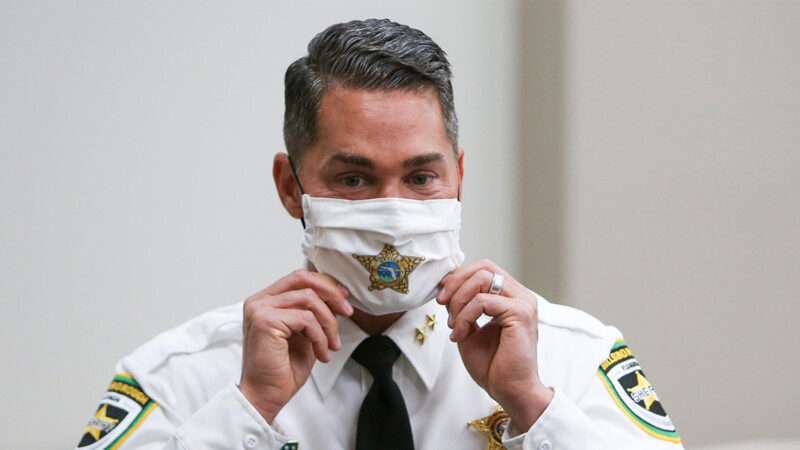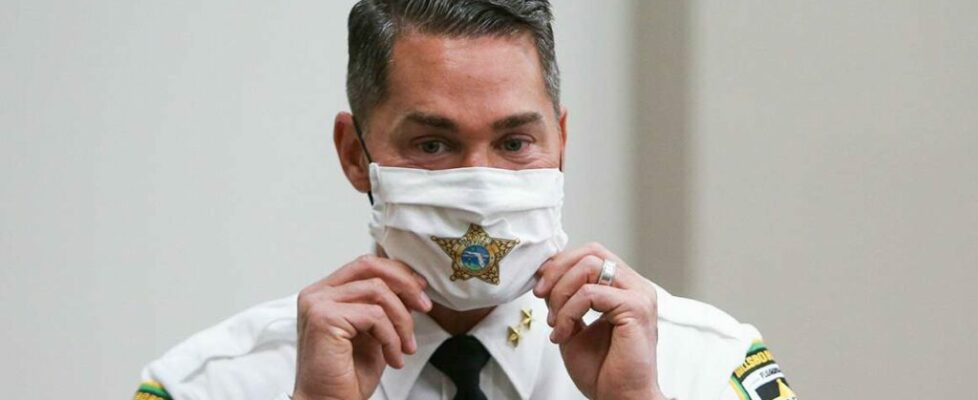Hypocrisy on Bodily Autonomy at the DEA

Here’s a news item no one saw coming: A man was deemed unworthy of heading the Drug Enforcement Administration (DEA) because he didn’t demonstrate sufficient respect for Americans’ rights to take risks with their own bodies.
Watching President-elect Donald Trump assemble a Cabinet has been chaotic, to say the least. But no saga has been more interesting for the fate of bodily autonomy than the squabble over the DEA.
Trump announced the selection of Hillsborough County Sheriff Chad Chronister on November 30. The local Florida lawman was an odd choice for a federal agency that runs complicated international operations and has about 10,000 employees. There were also immediate whiffs of corruption; he’s married to the daughter of former San Francisco 49ers owner Edward J. DeBartolo Jr., whom Trump pardoned during his first term. But neither of those reasons are why he withdrew suddenly on December 3.
After the nomination was announced, Rep. Thomas Massie (R–Ky.) posted: “I’m going to call ‘em like I see ‘em. Trump’s nominee for head of DEA should be disqualified for ordering the arrest [of] a pastor who defied COVID lockdowns.”
Massie, a consistent opponent of the lockdowns, flagged a boastful March 2020 tweet from Chronister “announcing the arrest of Dr. Ronald Howard-Browne, Pastor of The River at Tampa Bay Church, who intentionally and repeatedly disregarded state and local public health orders, which put his congregation and our community in danger.” The arrest came just days after an executive order was put in place banning gatherings of 10 people or more—including faith-based gatherings. The evangelical pastor proclaimed worship an “essential service” and declared he would not close his church “until the rapture.”
Massie is right the arrest was nothing to brag about. It was one of the many, many instances of state overreach during the pandemic. In the ensuing controversy, the church claimed it had been honoring the Centers for Disease Control and Prevention’s distancing guidelines (which later turned out to be unscientific and needlessly bureaucratic).
It is heartening to see so many Republicans leap to the defense of bodily autonomy, indeed to consider it a litmus test for a potential officeholder’s worth. It’s deeply weird to see that happen over an appointment to head the agency responsible for some of the most egregious violations of that autonomy.
***
The DEA operates under the misguided premise that it has the right to enforce arbitrary standards about what risks individuals can take with their own bodies—the same basic issue at the heart of the lockdowns. From raiding medical marijuana dispensaries in states where cannabis is legal to aggressively pursuing patients and doctors in pain management cases, the DEA routinely preempts the rights of seekers of relaxation or relief.
The agency criminalizes personal choices, incarcerates people for nonviolent drug offenses, and exacerbates public health crises like the recent wave of opioid abuse by instilling fear in doctors who might otherwise prescribe necessary medication and thus driving users into black markets. By its very nature, the DEA assumes federal power over matters of personal health and risk taking.
Moreover, the DEA’s focus on prohibition over harm reduction fuels unsafe underground markets, endangering lives while claiming to protect them. Its existence is a testament to the federal government’s willingness to sacrifice personal liberty on the altar of moralistic control, making it one of the most antiautonomy agencies in Washington.
For its role in the prohibition of psychedelics, it infringes on freedom of conscience and even, in some cases, on traditional religious practice. The Supreme Court made clear in 2006’s Gonzales v. O Centro Espírita Beneficente União do Vegetal that protections under the First Amendment and the Religious Freedom Restoration Act could apply to the use of ayahuasca, a tea containing the hallucinogenic substance DMT, in religious ceremonies. Yet the DEA considers it a Schedule I substance.
***
Massie, to his credit, has been a skeptic of what he has called the “failed war on drugs.” He has called for an end to marijuana prohibition, as well as for checks on drug enforcers’ invasions of privacy. But most are not so consistent. The same hypocrisy is evident on many issues—and present on both sides of the aisle—from fertility and gender to draft registration.
The case against overzealous enforcement of COVID-19 lockdown orders is the case against the DEA. Good riddance to Chronister, but while we’re weeding out threats to personal liberty from law enforcement, let’s consider striking at the root.
That executive order that Chronister was enforcing? It was signed by Florida Republican Gov. Ron DeSantis, who was, at the time Chronister withdrew from consideration, rumored to be under consideration for a possible Cabinet spot of his own.
The post Hypocrisy on Bodily Autonomy at the DEA appeared first on Reason.com.
